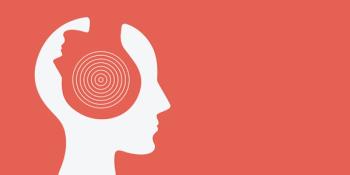
- Vol 32 No 4
- Volume 32
- Issue 4
Reflecting on the Spiritual Man
Watchman Nee’s suggestion of a potential link between spirituality and mental health is no longer foreign to the field of psychiatry. Recent studies indicate that spiritual beliefs may have a positive effect on mental health.
Watchman Nee (1903-1972) was a Chinese pastor, theologian, and author who wrote extensively within the fields of psychology and spirituality. Considered his greatest literary accomplishment, The Spiritual Man1 is a treatise on human nature and the psychology of spiritual experience. Nee discusses the physical, intellectual, and spiritual powers of mankind, suggesting-as an organizing principle-that human beings are a unity of body, soul, and spirit.
According to Nee, the body is the organ of “world-consciousness.” It apprises the individual of pleasures contained within the external world, through its corporeal senses of sight, sound, smell, taste, and touch. Nee believed that bodily sensation is the lowest form of consciousness and should be subordinate to the desires of the spirit. In unstable persons, this hierarchy is disrupted: the body persuades the higher faculties to consent to gratification of its impulses. If unchallenged by conscience, the body may eventually enslave the soul.
The soul is defined as the organ of “self-consciousness.” It is the site of the individual’s personality and identity. The faculties of the soul are mind, will, and emotion. The mind is understood as the psychological entity derived from the brain. Within the mind, the individual’s intellectual powers manifest through the instrument of cognition. The soul is organized such that the intellectual and emotional powers battle for influence over the will-the decision-making entity. The will ultimately determines behavior. In a “soulical” man, the will is attuned to the satisfaction of self. In a “spiritual” man, the will is attuned to the satisfaction of the spirit.
The spirit is defined as the organ of “God-consciousness.” It serves 3 primry functions: discernment, through conscience (ie, distinguishing right and wrong by a spontaneous judgment); intuition (ie, sensing divine revelation); and communion (relating to God directly-posited as the highest form of consciousness). The spiritual man is one whose thoughts, feelings, and behaviors are under the spirit’s control. Mental quietude is one of the assumed benefits of authentic spirituality. By contrast, mental distress-racing thoughts, confusion, and “disturbance to the point of agony”-may accompany spiritual errors. Recovery from such a state theoretically involves addressing spiritual distor-tions through realignment with divine truth.
Nee’s suggestion of a potential link between spirituality and mental health is no longer foreign to the field of psychiatry. Recent studies indicate that spiritual beliefs may have a positive effect on mental health.2 In response, new practice guidelines have been issued that encourage health care professionals to consider a patient’s spiritual/religious ideals in routine psychiatric assessments.3[
A remaining challenge is that there is no agreed-on approach to taking a spiritual history. Furthermore, it can be difficult to decipher what in a patient’s experience is clinically relevant (eg, church attendance versus private meditation). It has been suggested that at the very least, clinicians should inquire about a patient’s religious affiliation.5
In taking a spiritual history, Nee might suggest engaging patients with an open-ended inquiry about the importance of God/spirituality in their lives. It is generally my practice to inquire about a patient’s spiritual background toward the end of an intake interview. I ask something like, “Do you have any spiritual or religious beliefs that are important to you?” This is an open-ended question that tends to be inclusive of those who may not identify with a particular religion but who still find value in spiritual principles. And, it does not seem to alienate those who have no connection with either spirituality or religion.
If the response to my question is positive, I generally follow with an inquiry about whether/how a patient’s spiritual involvement has affected his or her symptoms. In response, many patients have felt comfortable sharing how their spirituality is a powerful coping tool that lessens the burden of mental illness. Others have admitted to spiritual conflict, which intensifies their mental anguish.
Understanding the degree of spiritual distress, especially in patients with strong religious backgrounds, can be helpful in treatment planning. Numerous instruments have been developed to assist with assessment of spirituality and intervention when needed.6 The RCOPE7 is a popular self-report measure that may approximate the psychological impact of spiritual involvement. It includes a 7-item negative religious coping subscale, which may approximate spiritual distress and is easily administered. Clinicians may also want to consider routinely offering a chaplaincy consult for all patients who identify as religious or spiritual.
Nee’s tri-partite analysis of human nature as a unity of body, mind, and spirit may enhance the clinical rationale for addressing spirituality in psychiatric settings. Not knowing how to engage patients around their spiritual beliefs should no longer present a barrier. There are validated assessment tools to assist the clinician with this process.
Acknowledgments-The author thanks Drs Gregory and Carol Allen of Huntsville, Ala, for their thoughtful initial review of this article.
Disclosures:
Dr Medlock is a PGY-2 Resident at the Massachusetts General Hospital-McLean Hospital Adult Psychiatry Residency Program. She reports no conflicts of interest concerning the subject matter of this article.
References:
1. Nee W. The Spiritual Man. New York: Christian Fellowship Publishers, Inc; 1968.
2. Weber SR, Pargament KI. The role of religion and spirituality in mental health. Curr Opin Psychiatry. 2014;27:358-363.
3. American Psychiatry Association. Resource Document on Religious/Spiritual Commitments and Psychiatric Practice. Approved by the Joint Reference Committee, December 2006.
4. ACGME Program Requirements for Graduate Medical Education in Psychiatry. http://www.acgme.org/acgmeweb/Portals/0/PFAssets/ProgramRequirements/400_psychiatry_07012014.pdf. Accessed March 18, 2015.
5. Behforouz HL, Drain PK, Rhatigan JJ. Rethinking the social history. N Engl J Med. 2014;371:1277-1279.
6. Lucchetti G, Bassi RM, Lucchetti AL. Taking spiritual history in clinical practice: a systematic review of instruments. Explore (NY). 2013;9:159-170.
7. Pargament KI, Koenig HG, Perez LM. The many methods of religious coping: development and initial validation of the RCOPE. J Clin Psychol. 2000;56:519-543.
Articles in this issue
almost 11 years ago
Introduction: The State of Addiction Psychiatryalmost 11 years ago
Opioid Use Disorder: Update on Diagnosis and Treatmentalmost 11 years ago
A Brief Review of Gambling Disorder and Five Related Case Vignettesalmost 11 years ago
An Update on Street and Club Drugs: What Clinicians Need to Knowalmost 11 years ago
Video Games: Recreation or Addiction?almost 11 years ago
The Hoarding of Animals: An Updatealmost 11 years ago
Still Alicealmost 11 years ago
Prescribing Opioid Analgesics: Are We Going in the Right Direction?Newsletter
Receive trusted psychiatric news, expert analysis, and clinical insights — subscribe today to support your practice and your patients.







